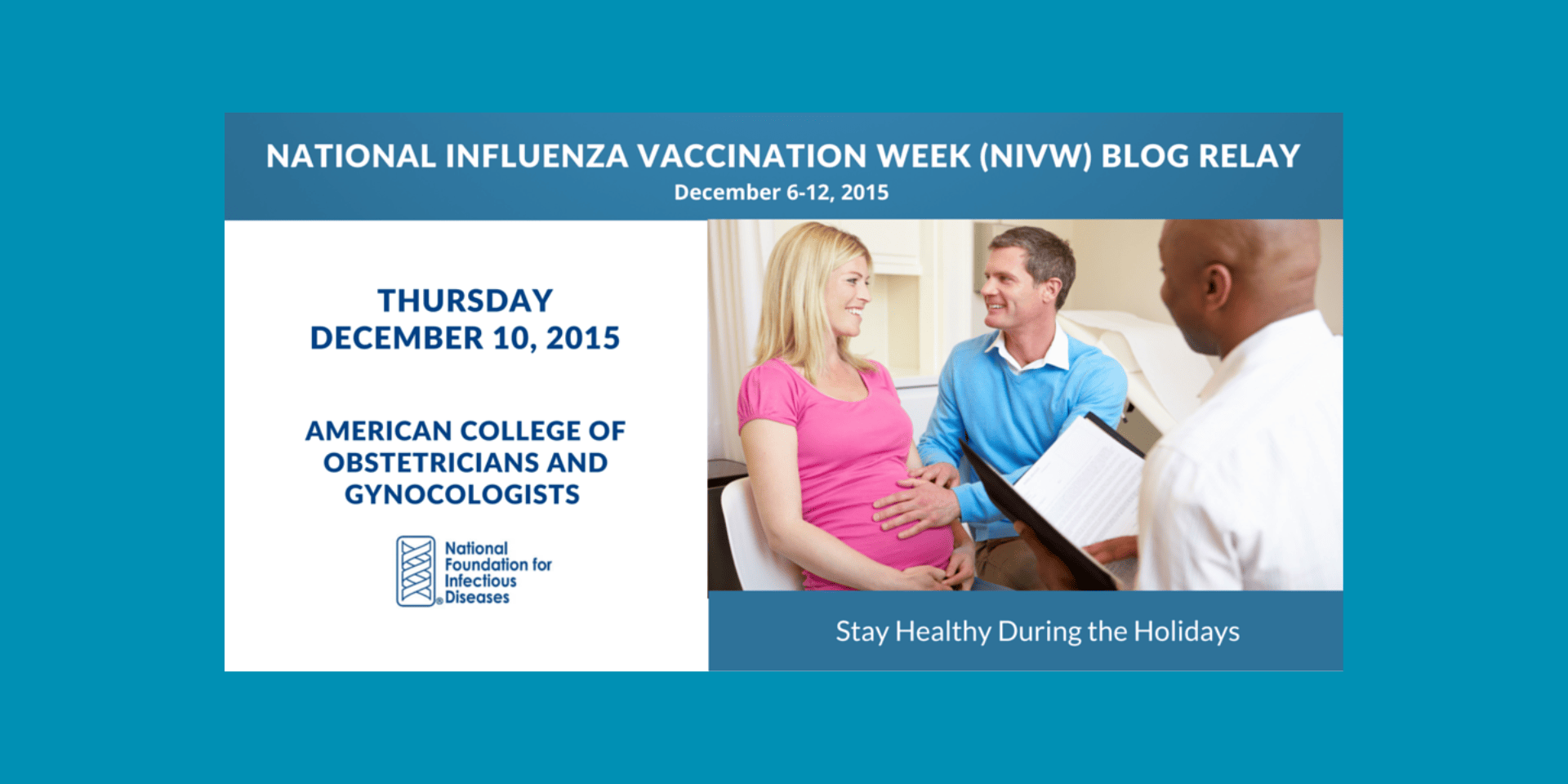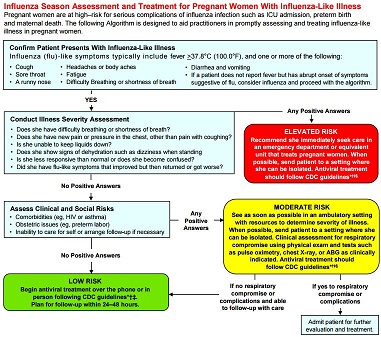
Special thanks to the American College of Obstetricians and Gynecologists (ACOG) for this guest blog post on the importance of influenza (flu) vaccination for all pregnant women and the need for a strong healthcare professional recommendation, as part of the NFID inaugural 2015 National Influenza Immunization Week (NIVW) Blog Relay.
The holiday season is here again! Unfortunately, it also coincides with flu season and we still have a long way to go when it comes to meeting US public health goals for influenza immunization. A recent poll found that in the US, many don’t believe they need the flu vaccine. Those who haven’t been immunized cited a variety of reasons including the belief that the flu vaccine is unnecessary and ineffective, concerns about the side effects or associated risks, and worries that the vaccine could make them sick with the flu. At ACOG, we know the flu vaccine is safe, effective, and the best protection for all, including pregnant women, against influenza.
Pregnant women are at increased risk for complications, and even death, from the flu. It’s our job as healthcare advocates to communicate that message to our members, family, and friends.
During National Influenza Vaccination Week (NIVW), ACOG urges all individuals 6 months of age and older to get an annual flu vaccine, especially pregnant women.
 ACOG has information on the benefits of the flu vaccine as well as treatment for those who do become ill with the flu. Resources include:
ACOG has information on the benefits of the flu vaccine as well as treatment for those who do become ill with the flu. Resources include:
- Opinions from the Committee on Obstetric Practice and Immunization Expert Work Group
- Influenza Resources
- FAQs for Pregnant Women Concerning Influenza Vaccination During Pregnancy.
For more information about immunizations recommended during pregnancy, visit www.immunizationforwomen.org and family-vaccines.org.
If you are pregnant and think you may have the flu, call your healthcare professional immediately. Make sure you notify them that you are pregnant, and of your symptoms. They may be able to prescribe antiviral medications that can ease your symptoms and keep you from developing complications from the illness.
 Healthcare professionals who treat pregnant women should follow the ACOG/Society for Maternal-Fetal Medicine (SMFM) Influenza Season Assessment and Treatment for Pregnant Patients with Influenza-like Illness algorithm. If influenza is suspected, do not wait for rapid test results to initiate treatment, and treat presumptively regardless of vaccination status. Stay healthy this holiday and flu season by getting yourself vaccinated and strongly recommending and offering the influenza vaccine to your patients.
Healthcare professionals who treat pregnant women should follow the ACOG/Society for Maternal-Fetal Medicine (SMFM) Influenza Season Assessment and Treatment for Pregnant Patients with Influenza-like Illness algorithm. If influenza is suspected, do not wait for rapid test results to initiate treatment, and treat presumptively regardless of vaccination status. Stay healthy this holiday and flu season by getting yourself vaccinated and strongly recommending and offering the influenza vaccine to your patients.
ACOG urges healthcare and public health organizations to join the NFID Leading By Example initiative and encourage staff, family, and friends to get vaccinated.
To join the conversation, follow NFID on Twitter (@nfidvaccines) using the hashtags #FightFlu and #NIVW, like NFID on Facebook, join the NFID Linkedin Group, and subscribe to NFID Updates.
Related Posts

News Round-Up: Infectious Disease Threats
According to NFID website poll, there are several worrisome infectious disease threats. Read recent news on topics of greatest concern, including avian influenza (bird flu), measles, and respiratory syncytial virus (RSV) …

Vaccines and Heart Health: A Vital Connection
Heart disease can increase the risk of serious or fatal complications from respiratory diseases including COVID-19, flu, and RSV

Harnessing the Power of Local Data
NFID dashboard aims to empower stakeholders with hyperlocal data to increase US adult respiratory vaccine uptake
